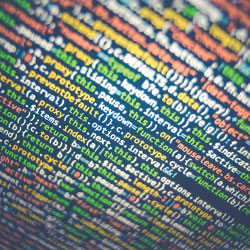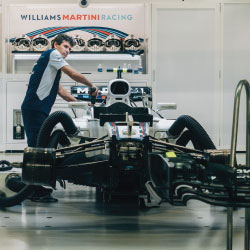Processing Request...
Processing Request...

Education is the process of facilitating learning, or the acquisition of knowledge, skills, values, beliefs, and habits. Educational methods include teaching, training, storytelling, discussion and directed research. Education frequently takes place under the guidance of educators, however learners can also educate themselves. Education can take place in formal or informal settings and any experience that has a formative effect on the way one thinks, feels, or acts may be considered educational. Formal education is commonly divided formally into such stages as preschool or kindergarten, primary school, secondary school and then college, university, or apprenticeship.
Learn More

In art, a study is a drawing, sketch or painting done in preparation for a finished piece, or as visual notes. Studies are often used to understand the problems involved in rendering subjects and to plan the elements to be used in finished works, such as light, color, form, perspective and composition.
Learn More

Business is the activity of making one's living or making money by producing or buying and selling products (such as goods and services). Simply put, it is "any activity or enterprise entered into for profit. It does not mean it is a company, a corporation, partnership, or have any such formal organization, but it can range from a street peddler to a multi national corporation."
Learn More

Humanities are academic disciplines that study aspects of human society and culture. The humanities use methods that are primarily critical, or speculative, and have a significant historical element — as distinguished from the mainly empirical approaches of the natural sciences, yet, unlike the sciences, it has no central discipline. The humanities include the study of ancient and modern languages, literature, philosophy, history, archaeology, anthropology, human geography, law, politics, religion and art.
Learn More

Mathematics includes the study of such topics as quantity, structure, space and change. Mathematicians seek and use patterns to formulate new conjectures; they resolve the truth or falsity of conjectures by mathematical proof. When mathematical structures are good models of real phenomena, mathematical reasoning can be used to provide insight or predictions about nature. Through the use of abstraction and logic, mathematics developed from counting, calculation, measurement, and the systematic study of the shapes and motions of physical objects. Science is a systematic enterprise that builds and organizes knowledge in the form of testable explanations and predictions about the universe. Modern science is typically divided into three major branches that consist of the natural sciences (e.g., biology, chemistry, and physics), which study nature in the broadest sense; the social sciences (e.g., economics, psychology, and sociology), which study individuals and societies; and the formal sciences (e.g., logic, mathematics, and theoretical computer science), which study abstract concepts.
Learn More

Computer science is the study of processes that interact with data and that can be represented as data in the form of programs. It enables the use of algorithms to manipulate, store, and communicate digital information. A computer scientist studies the theory of computation and the design of computer systems. Its fields can be divided into theoretical and practical disciplines. Computational complexity theory is highly abstract, while computer graphics emphasizes real-world applications. Programming language theory considers approaches to the description of computational processes, while software engineering involves the use of programming languages and complex systems. Human–computer interaction considers the challenges in making computers useful, usable, and accessible.
Learn More

Engineering is a section of technology and science that focuses on the design of engines, machines, structures and electrical systems. Engineering is deeply rooted in mathematics principles. Engineering is also a very broad topic. There are many subsets of engineering that make up the discipline. Engineers can work in careers ranging from astronauts to food production engineers. There are three major branches of engineering: civil engineering, chemical engineering and mechanical engineering.
Learn More

Medical science covers many subjects which try to explain how the human body works. Starting with basic biology it is generally divided into areas of specialization such as anatomy, physiology and pathology with some biochemistry, microbiology, molecular biology and genetics.
Learn More

Skills refers to the ability to work with hands. Electricians, plumbers, car mechanics, smith and steamfitters are among skilled industrial trades.
Learn More

Hospitality is the relationship between a guest and a host, wherein the host receives the guest with goodwill, including the reception and entertainment of guests, visitors, or strangers. Louis, chevalier de Jaucourt describes hospitality in the Encyclopédie as the virtue of a great soul that cares for the whole universe through the ties of humanity. Hospitality is also the way we treat people, that is the service of welcoming receiving guests for example in hotels. Hospitality plays a fundamental role to augment or decrease the volume of sales of an organization hence every business should master it.
Learn More


Take our free psychometry test to discover your passion and potential!
Try It Now!

Book a campus tour through us!
Book Now!

Submit your result to Edumetry, and a list of scholarship that is eligible for your result will be filtered out for you!
Match Now!